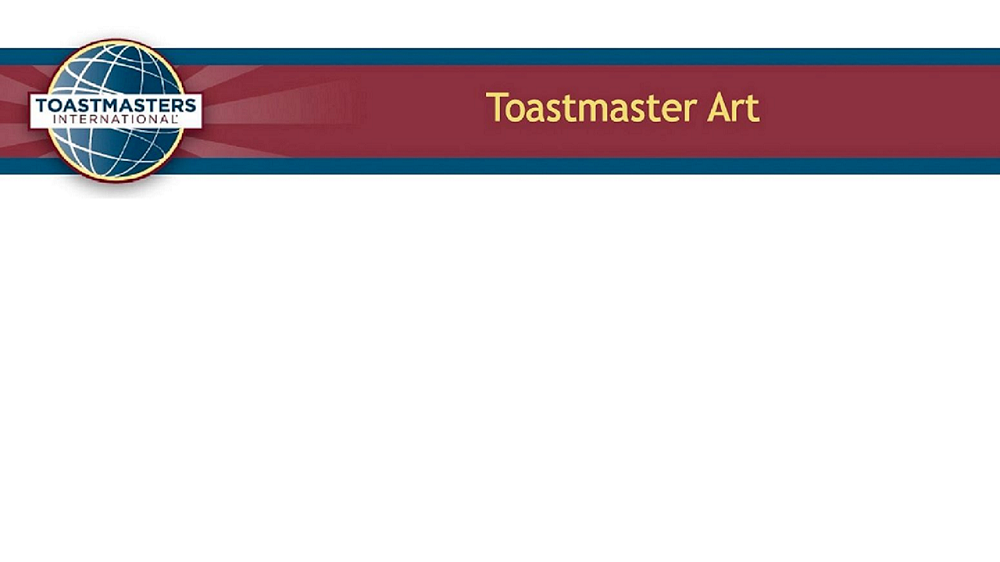I serve as a transcriptionist, listening to phone calls between automobile insurance adjusters and people who have been in an accident. It is verbatim transcription, which means that each and every crutch/filler word and sound gets typed. As a Toastmaster, it drives me crazy. I want to reach out to the parties and scream, “Join Toastmasters, and learn how to speak!” While it is the insured who is usually the worst transgressor, the adjuster is oftentimes just as bad. Would you not think that insurance adjusters, who communicate all the time with people on the phone, would have some communications training when they take the job? Would it not be advantageous for the insurance company to have competent communicators manning the phones?
Do you sense the need for more corporate clubs?
Here is an extract from a transcript I recently prepared. I believe the interviewee was a teenage girl, and as you will read, her favorite filler is the word “like.” Brace yourself!
So we were at his house and I was, like, parked along the curb and he pulled into his driveway. And then when he, like, got in his car he pulled out of his driveway and started coming towards me. Um, and he, like, wanted to, like, tell me something, I guess, ‘cause, like, I didn’t realize that then until it was, like, too late, that he was, like, rolling down his window to, like, tell me something. Um, and he, like, was coming, like, closer so then he, like, could, like, talk to me. Um, and that’s, like, like, we were both, like, kind of at, like, an angle, like, when we hit.
Wow! (Your exclamation selection might be different) I count 17 uses of “like” in five sentences.
If we strip out her misuse of the filler sound “um,” used three times as a sentence starter, and the filler word “so,” used once as a sentence starter, we have the following, which I trust you find easier to follow:
We were at his house and I was parked along the curb and he pulled into his driveway. And then when he got in his car he pulled out of his driveway and started coming towards me. And he wanted to tell me something, I guess, ‘cause I didn’t realize that then until it was too late, that he was rolling down his window to tell me something. And he was coming closer so then he could talk to me. And that’s, we were both kind of at an angle when we hit.
OK, it ain’t perfect–starting sentences with “and” is not the best choice, and she does have a sentence restart in the last sentence–but it’s a lot better.
Like, what’s the point?
When you take the Ah Counter role at a club meeting I urge you to be prepared (with your Ah Counter’s Log), and to be a diligent listener. Your efforts might just help someone escape from the cursed Loch Like.
See https://www.toastmasters.org/membership/club-meeting-roles/ah-counter for more information
Challenge: Have the word “like” be the word of the day at a club meeting. The Word Master will be listening for proper usage–be aware that it can serve properly as an adjective, noun, adverb, or transitive verb–and the Ah Counter will be listening for improper usage. Let me know if you want me to post here the Word Master slip that can be distributed to attendees at that meeting, describing like’s proper usage. Having read this article, you surely know like’s improper usage.


Your very engaging article demonstrates forcefully the importance of being an effective communicator. I would like to address another dimension of effective verbal communication, diction. Sloppy diction, which would include dropping off the end of words, can make some portions of a telecom unintelligible. Many native born Americans could benefit from more attention to their diction. There are many on line videos addressing this training need.
This might be a good Toastmasters Tip topic at a club meeting. The dictionary.com definition of diction is: “the accent, inflection, intonation, and speech-sound quality manifested by an individual speaker, usually judged in terms of prevailing standards of acceptability; enunciation.” I’m not sure how such a TM Tip segment would be crafted. Maybe you can share a link to one of the referenced online videos you found.
By “dropping off the end of words,” are you referring to, for example, “woulda” vs. “would have” or something else?
Art, I found articles in your blog very interesting to read especially the articles about filler words. They are well written with examples. I also learned that it is ok to say so instead of so that in the sentences where we intend to say so that. Thank you.